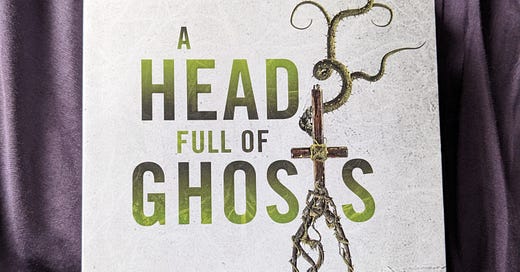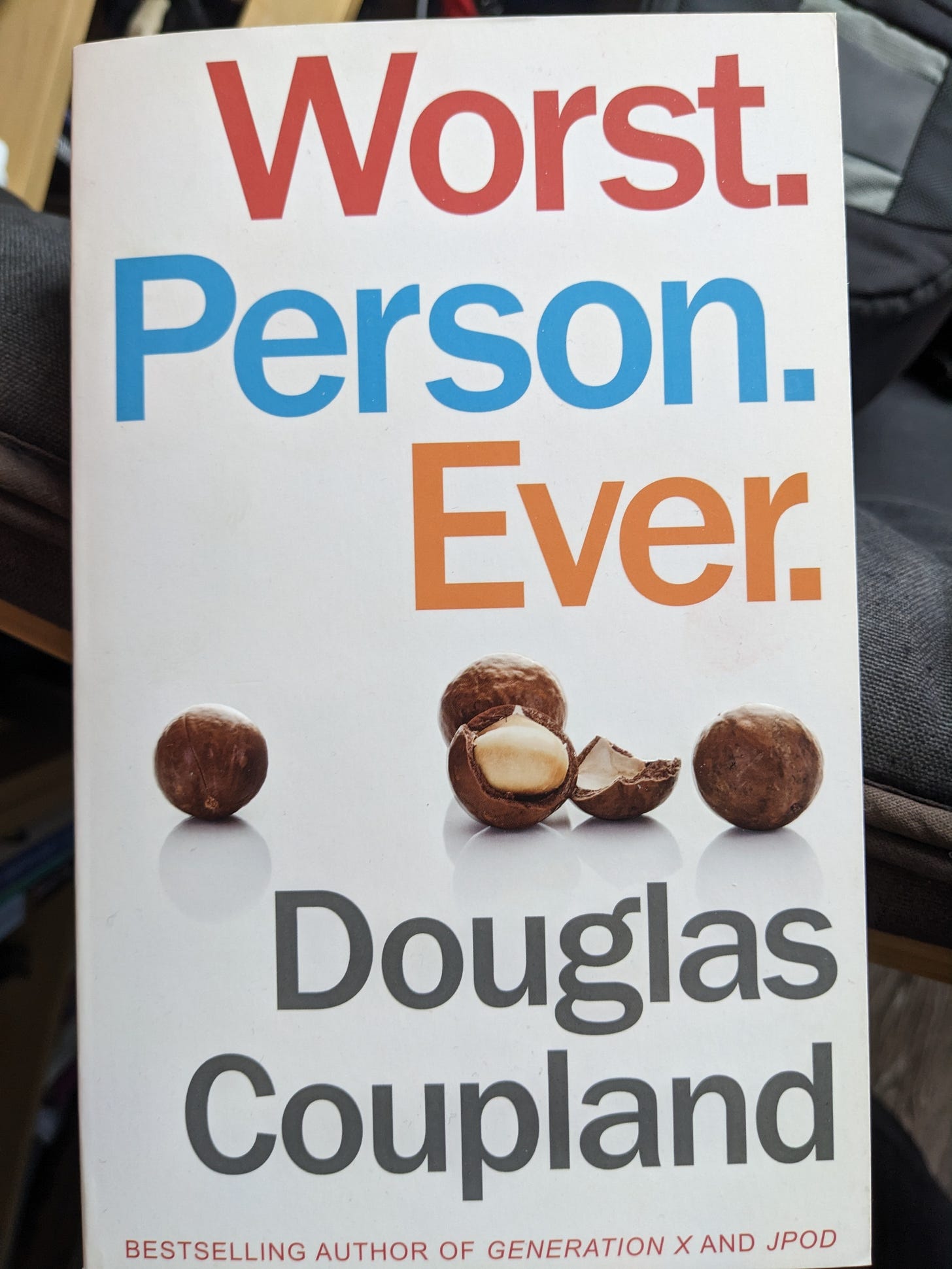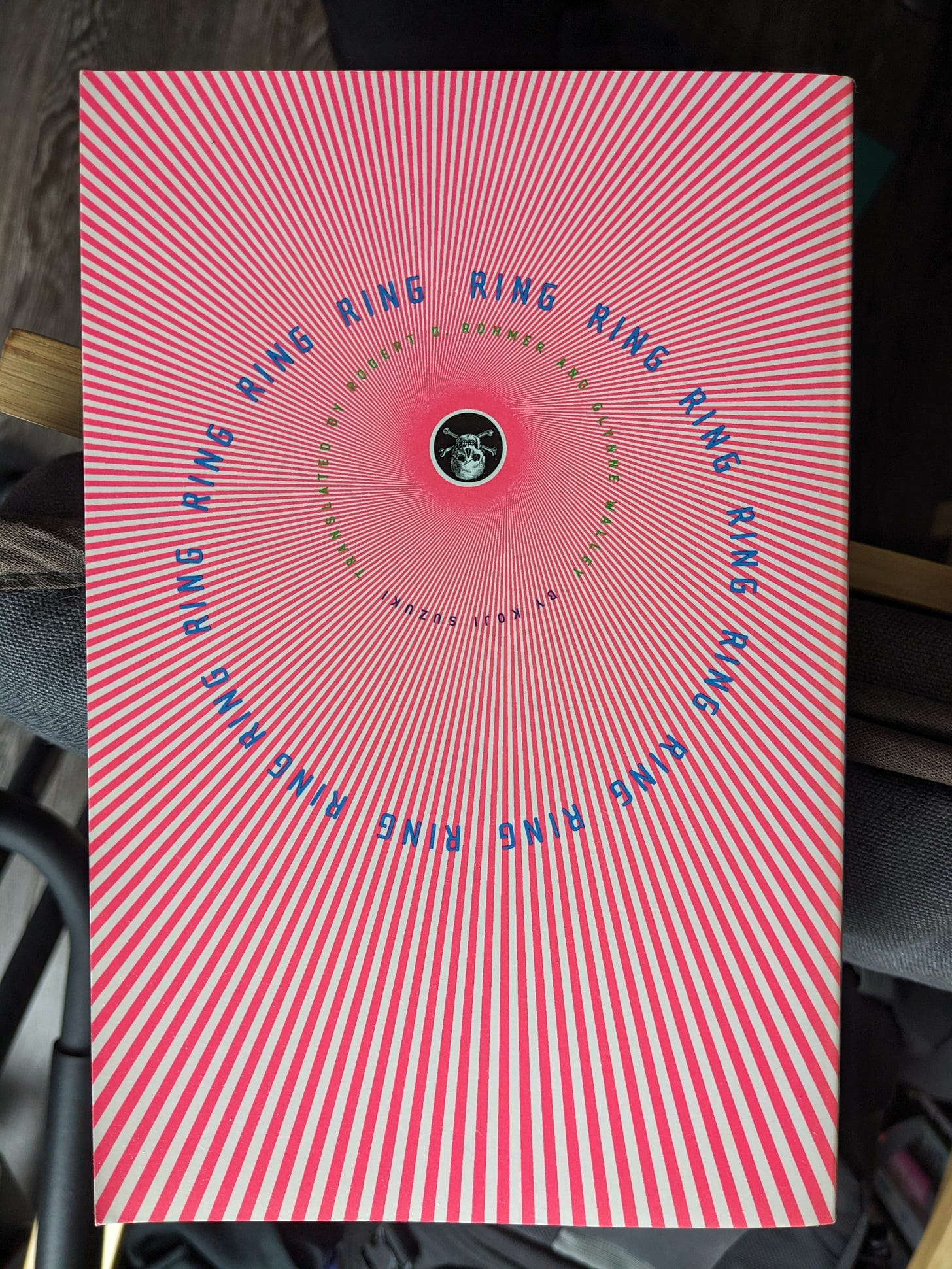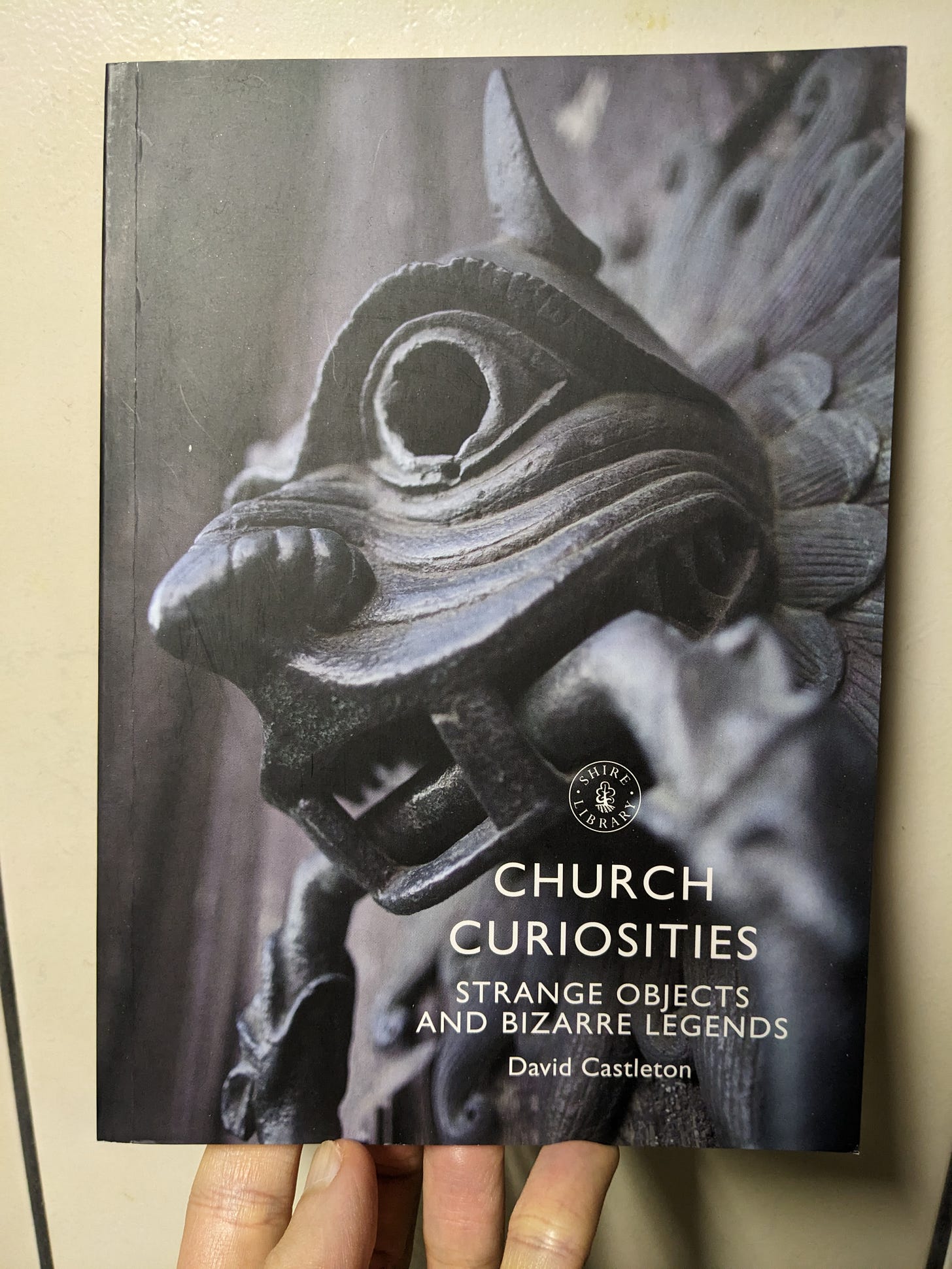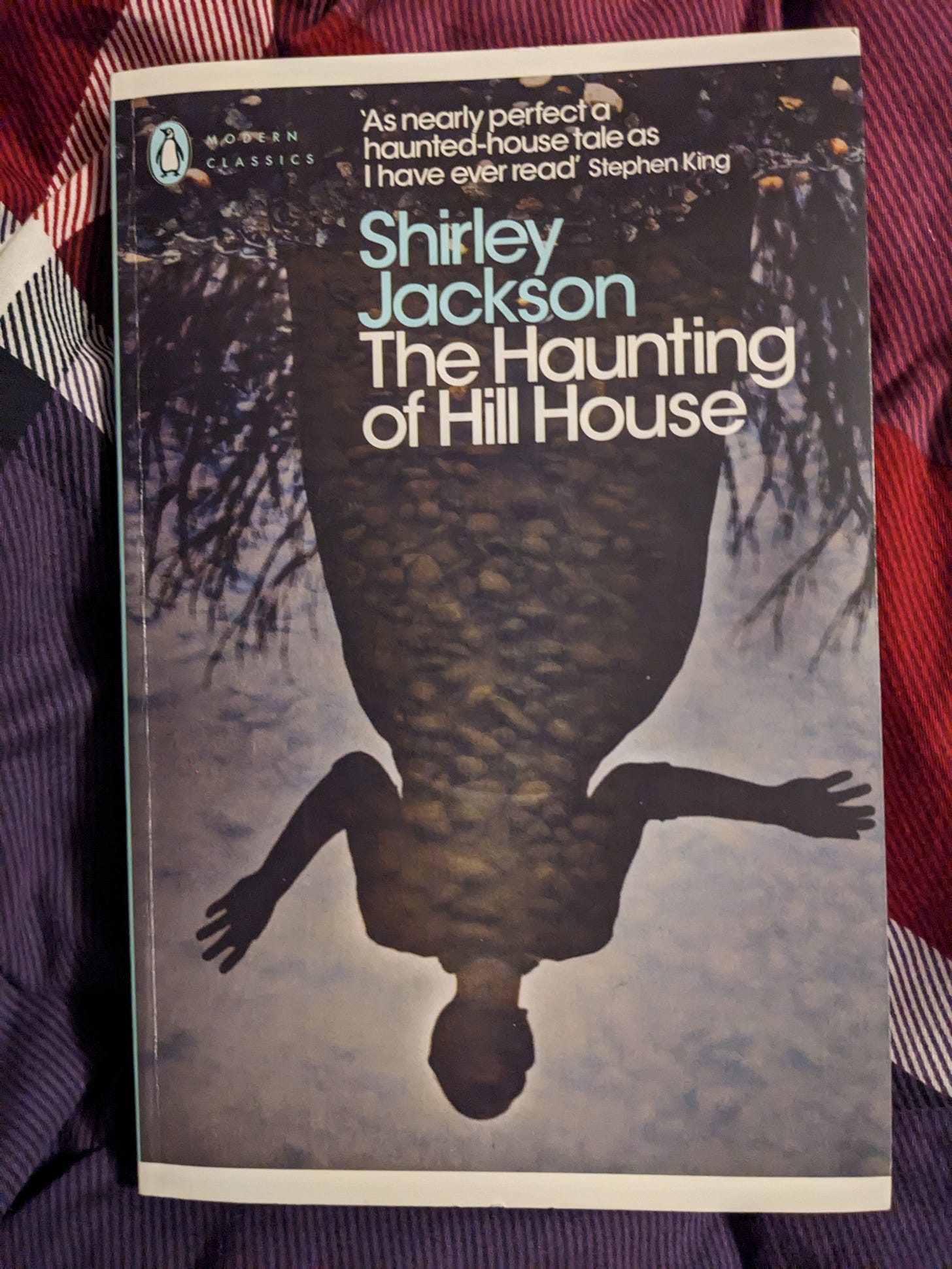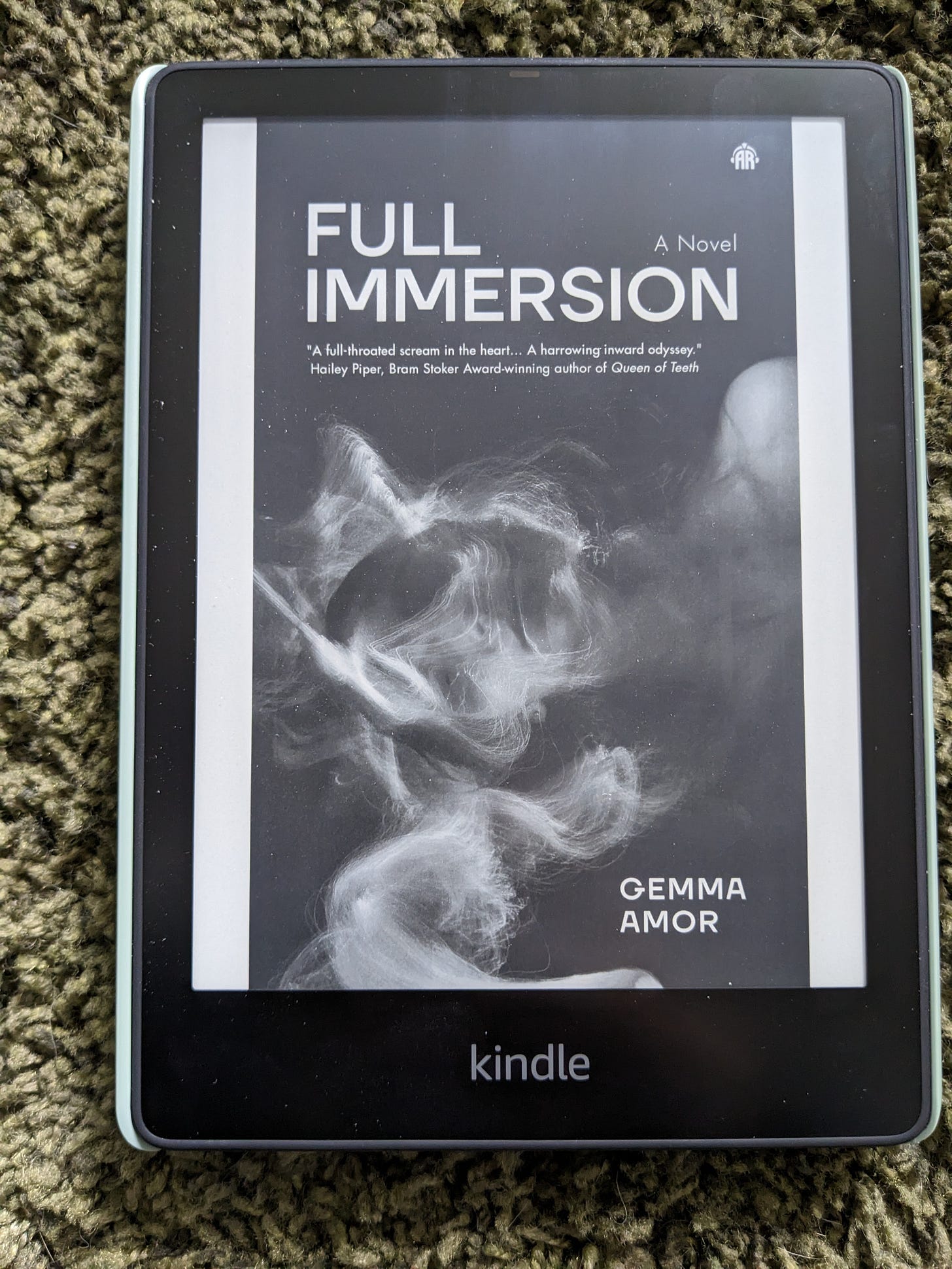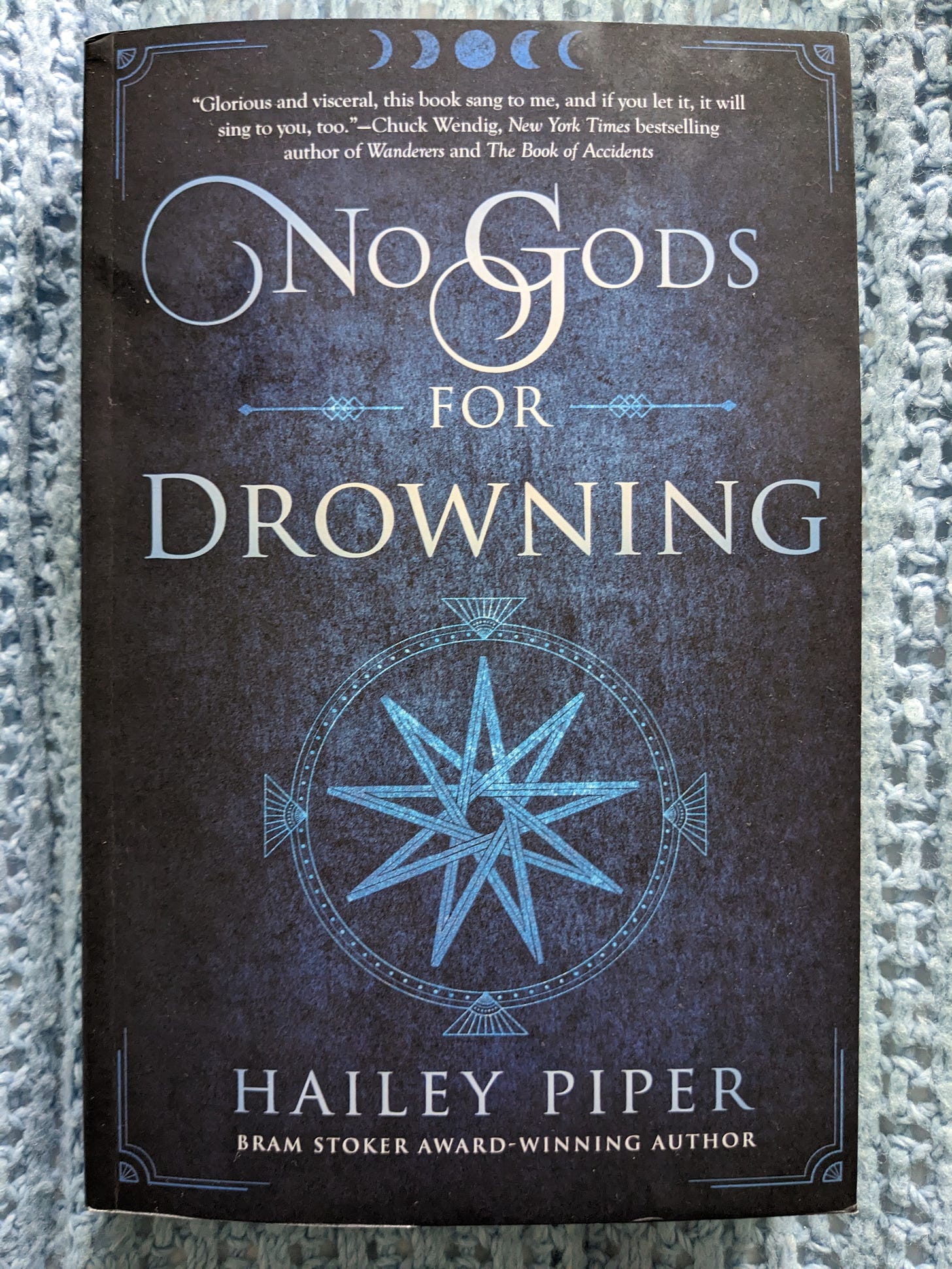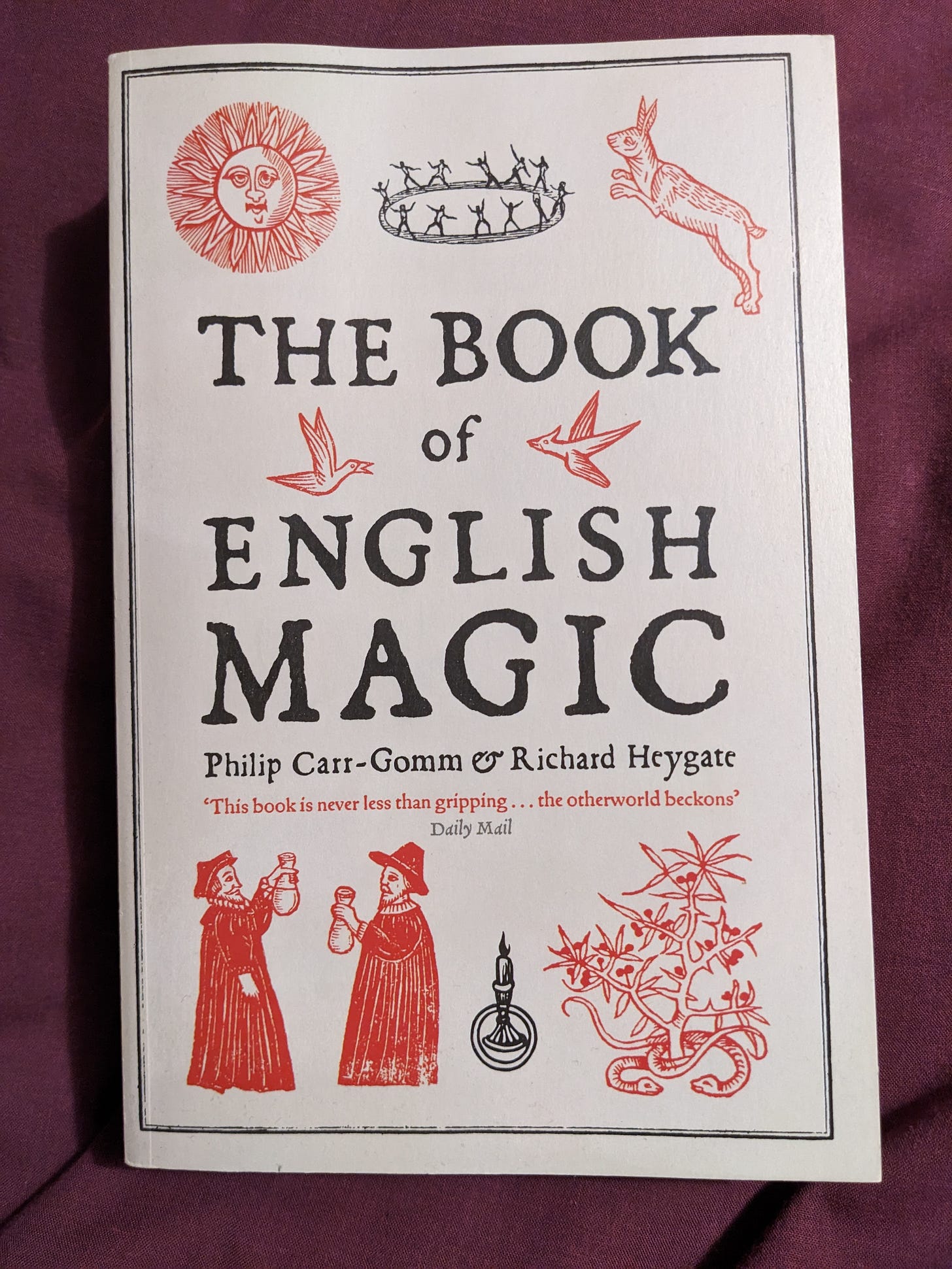My 2023 resolution was 'read more': here are the results (part 1)
What I got from aiming to read 20-40 pages every day, and all the things I've read.
At the end of 2022, I made a resolution to read more in 2023. I’d reached a point where I was barely getting through a book every six months - only reading a few pages before bed, then quickly falling asleep.
As a writer, that’s not great. So…
My 2023 resolution was to read 20-40 pages of a book every day.
Did I manage it?
I stopped counting after a while, but I certainly read a hell of a lot more.
Did it change me?
Yes! Looking back, it’s made a huge impact on my sense of creativity and connection with the world.
Benefits
I feel more in control of my mind -
Part of the purpose of ‘read more’ was to regain my mental space. It might seem counter-intuitive to jam more stories into my head to gain space, but what reading did was bring one story at a time into my head, quietening (for a while) the billion stories of war, climate catastrophe, political incompetence, pandemic deniers, and more that we wade through every day.
My attention span has improved
I could feel my mind flitting between ideas, always worrying or distracted by other tasks. After a year of making dedicated time to read every day, it feels easier to push aside other tasks and focus.
It’s still not perfect, but it definitely seems to have helped.
My memory has improved
This was frankly a very low bar to step over, but I feel like most of the time I would take in a story and then instantly forget it.
This year, with my decision to consciously pursue reading, I feel like I’ve got a much better memory for the things I’ve chosen to put into my head. Each day is less like a swimming grey mass of ‘stuff happened’.
My memory is still pretty bad, but I can look back on over 30 books I’ve read (or listened to) and say something about every one of them. That’s huge progress for me.
I wanted to exercise more
I mostly read physical/digital books (my already-full shelves quickly overflowed, so I bought a Kindle in the summer), but I also got back into audio books.
During the summer and autumn, I went for a walk around my small city, several times a week, and I’d be excited to go because that meant I could hear the next chapters.
It was fun
On very occasional days I might not have felt motivated, or a book might have been moving slower than I liked, but I’d say 90% of the time I thoroughly loved diving into these worlds. I felt excited to get back to reading, and looked forward to those moments.
Downsides
¯\_(ツ)_/¯
See bullet point 1.
So, if you’re still looking for a resolution for the year ahead, I strongly recommend ‘read 20-40 pages every day’.
Want to try it yourself? For inspiration, here’s everything I read (part 1)
(In no particular order, and this post contains affiliate links to all the books I read.)
A Head Full of Ghosts - Paul Tremblay
A superb supernatural-or-is-it haunted house/mental health story.
I’d read great things about it and it absolutely delivered.
I’d previously listened to The Pallbearer’s Club and so had a bit of a feel for Tremblay’s style of deniable-spookiness (is it supernatural or all in the mind?) but this absolutely nails the uneasy sense of ambiguity and uncertainty.
When poltergeist-like events and odd behaviour manifest in a suburban household, it’s uncertain if anyone — the witnesses, the reporters, or the family involved — can be believed. Is it a mental health crisis? Is it a possession?
What it definitely is, is superb. I absolutely loved this.
Needless to say, this has a bunch of mental health trigger warnings all around it, but if you’re okay with that then I can’t recommend this highly enough. One of my favourites of the year.
Worst. Person. Ever - Douglas Coupland
A novel by the man who named ‘gen x’ - who could say no to that?
Well… I did for many years. I’ve carried this with me through house moves and somehow never got around to reading it. With my daily reading target, I was able to breeze through it in no time.
The writing is fast paced, the events flow quickly from one to another, and yet… This didn’t quite grab me. And the weird thing is, I think that was intentional.
Part of the point of ‘gen x’ was the sense of a disillusionment with modernist boomer culture, and the lack of narrative resolution here feels like it’s intentionally playing with that.
A filmmaker, who is shallow and lustful, stumbles from one event to another, possibly facilitating something approaching an apocalypse. Does he grow? Does he change? Well… He’s the worst person ever.
As an experiment in making something immensely readable with little character growth, it’s fascinating, but beyond that it didn’t land for me. I admire the craft in the writing, and Coupland keeps the tale interesting and outlandish throughout.
Ring - Koji Suzuki, translated by Glynne Walley
You might know the seriously creepy films (tip: watch the Japanese original if you want to avoid the US-style jump scares and really soak in the atmosphere).
Whoever watches a strange video cassette will die seven days later. When an investigator watches it, the clock starts ticking for him to unravel the curse.
This is an utterly brilliant set-up, full of tension, suspense, and folkloric darkness.
What’s different in the book, compared to the film, is the protagonists. The whole story is from a male perspective, including one notably awful person (with an interesting arc). That awful person isn’t replicated in the film, and I can see why - it’s an odd choice in the novel, but I have a feeling it builds a character arc for the main character that may continue into the sequel novels (or it might not, I’ve not read those). This choice makes for some uncomfortable reading — trigger warning about sexual assault.
What I love about the book is the sense of an investigation/race against time. The translation is also superb, really embodying a feel of Japanese prose storytelling.
That awful person in the narrative makes this a tougher read than the film, but it’s a great spooky yarn, and it spawned a classic mythos. Worth a read.
Church Curiosities - David Castleton
A complete change of pace — this is a factual book, recounting the stories of mysterious items scattered around UK churches.
It’s packed with great photographs of standing stones, gargoyles, and more, so it’s a very pleasant book to flick through for the images alone. It’s also quite short, but contains lots of interesting stories about the past.
Personally, I’d liked to have had a bit more of the legends (and some more spookiness) and a little less of the history, but it strikes a good balance. I get the feeling that churches don’t want to share too many dark stories about their property, so it’s understandable that it’s light on terrifying tales!
As a quick dive into curious historical relics, it’s great.
The Haunting of Hill House - Shirley Jackson
As a horror writer, it seems like madness that I’d not read any Shirley Jackson. This year was the time to fix that.
Worth mentioning: The Haunting of Hill House is nothing like the Netflix series! But if you liked that series, this will feel like an interesting prequel-ish.
A group of paranormal investigators enter a cursed house and spooky things ensue as the house works its darkness into their minds.
I’m in two minds about this. On one hand, it’s clear why this is a classic: it’s got a brilliant set up of paranormal investigators going into a cursed house (which was still quite original at the time), the writing is lively, the characters jump off the page, and the ending feels earned.
On the other hand… As a modern reader, I’ve read plenty of the tropes before (probably invented and mastered by Jackson) and certainly seen them in countless films. The house’s creeping malice was familiar in a way that meant it didn’t truly grab my bones and shove them into a freezer. The writing style is somewhat dated — it felt like Agatha Christie’s with ‘he exclaimed’ style speech tags. Christie is a genius storyteller though, so there are definitely worse people to be compared to!
If you want to go back to the source of so many haunted house genre standards, this is the motherlode, just be prepared that it might not scare you in the way you expect for a famous classic. Your mileage may vary — I’m very hard to creep out!
Full Immersion - Gemma Amor
From the past of horror, we jump bang up to date with a VR trauma treatment horror novel — and there are major trigger warnings around mental health on this one.
A woman with ongoing depression and suicidal thoughts goes into an experimental full-immersion VR world to face and overcome her demons… But are there real demons at work?
Fast-paced and engaging, this is clearly a work tackling big issues (there’s a sense that this is intensely personal for Amor, too). There’s very clever play on who to trust, what is real, and what the plans really are. There are great twists and turns along the way, that I won’t spoil, and I liked the ending.
There were a few parts where it felt like perhaps there were too many ideas in here, but overall it’s very much worth the ride.
If you fancy trying a modern author working outside typical haunted-house settings, Amor’s story is worth checking out.
No Gods for Drowning - Hailey Piper
So, I went in expecting a serial killer horror and got a deceitful gods fantasy novel, which coloured my experience here. I wasn’t expecting wish-granting gods and a hand drawn map on the first page, and that’s on me for not doing my research.
I loved the trans and queer representation, and there are some vibrant characters with fun and interesting conflicting motivations, but personally I didn’t vibe with the fantasy-gods side of the story… Which is a shame, but not everything lands for everyone. I’d definitely read non-fantasy by Piper and look forward to keeping an eye on her future work.
If you want dark fantasy with great queer characters, check it out.
The Book of English Magic - Philip Carr-Gomm & Richard Heygate
A complete history of magical practises in England, which is frankly a stunning achievement.
Another factual book, but one that left me curiously melancholy. My overriding feeling was that all our pre-Roman mythology has been utterly lost, leaving England without any knowledge of who we natively were before the Roman colonisation.
And yes, I’m 100% aware of the irony of this given England’s history in the last 600 years and what it’s done to others. It makes me wonder how deep the scars of losing our identity runs in English culture, and how much our loss of connection to the past shaped who we have become (Empire, Brexit, and more).
The writing is occasionally a bit dry, but it covers the ancient past to modern day, and has some much-appreciated and justified digs at right-wing distortion and appropriation of beliefs (such as Norse mythos).
This is a fascinating book if you want to discover the history of English magic.
Part two (more books) and Part three (the audiobooks) coming soon!
… And after those we’ll return to the normal schedule of short horror stories, writing tips and critiques, and extra fun things!
Until next time, be kind to yourselves and others,
Mata <3
P.S. What did you read last year? Anything I should check out in 2024?


